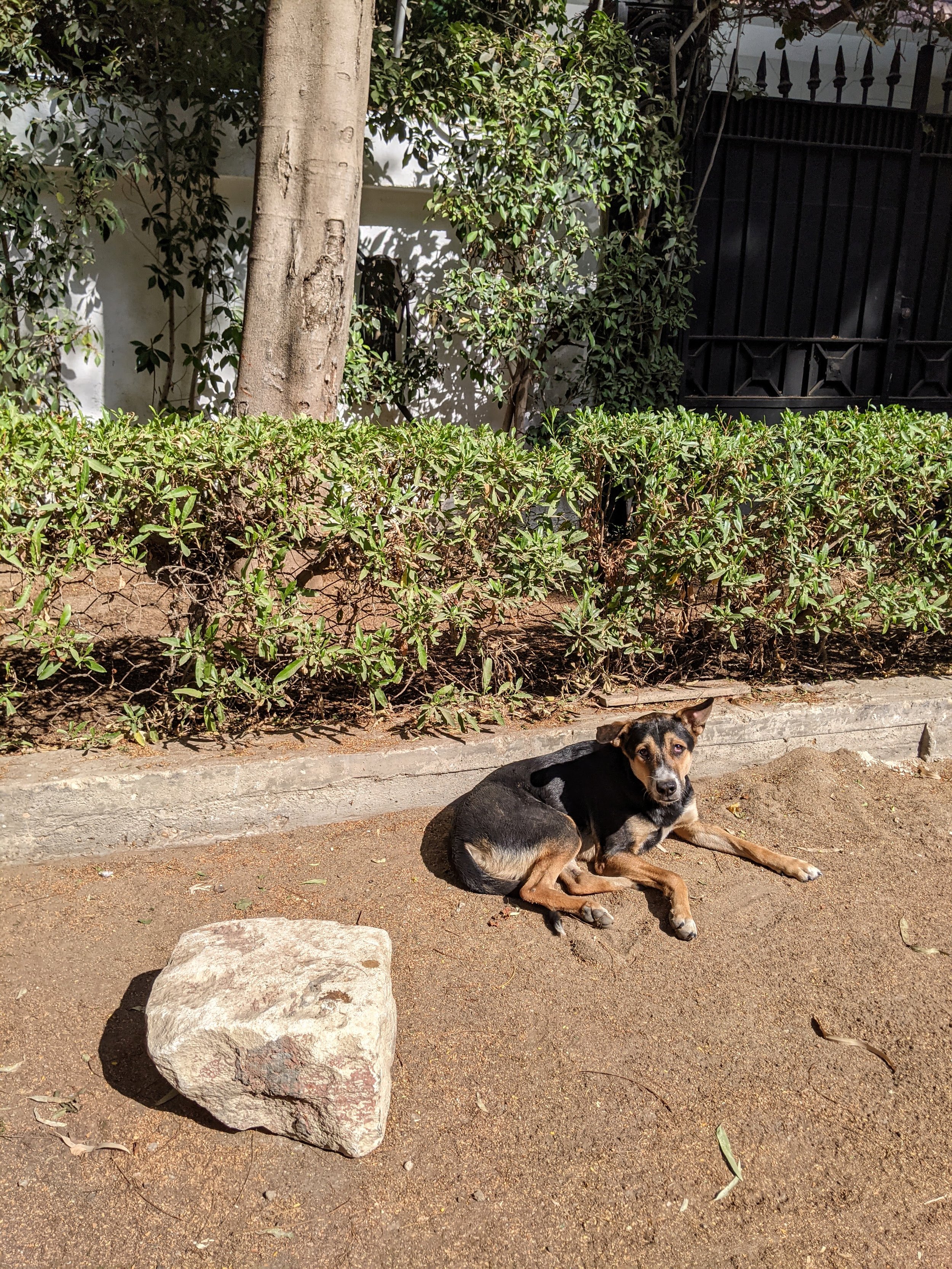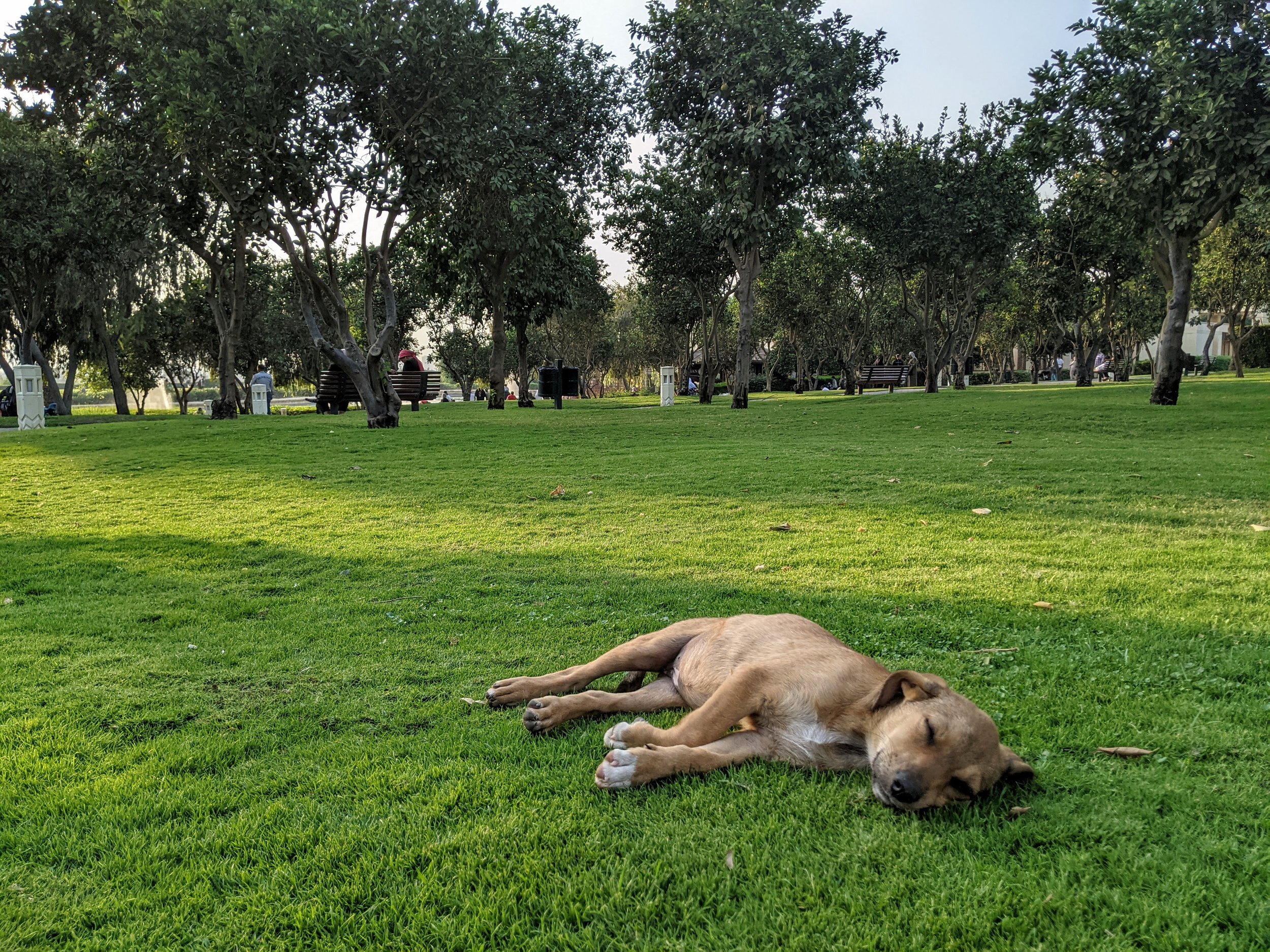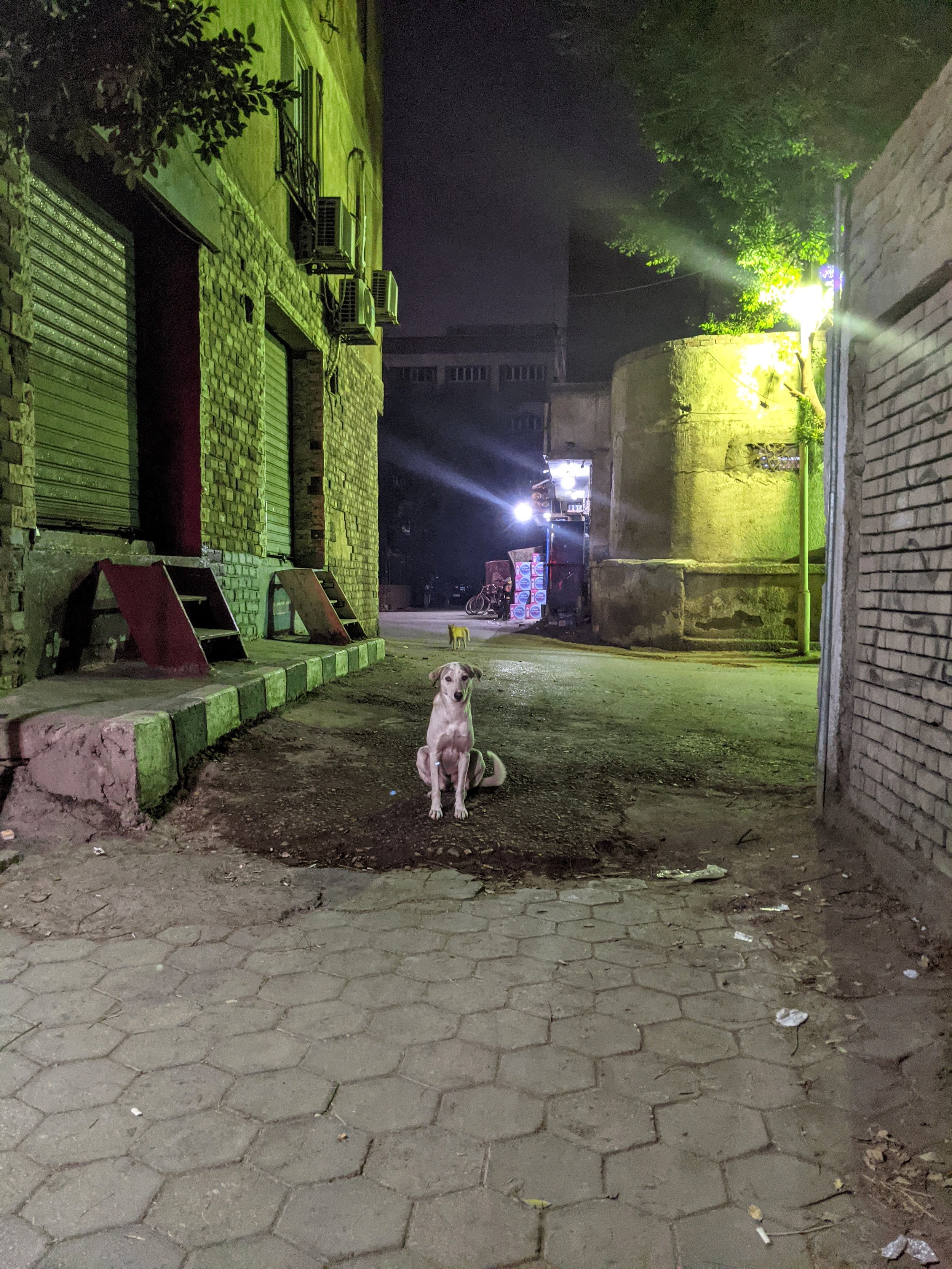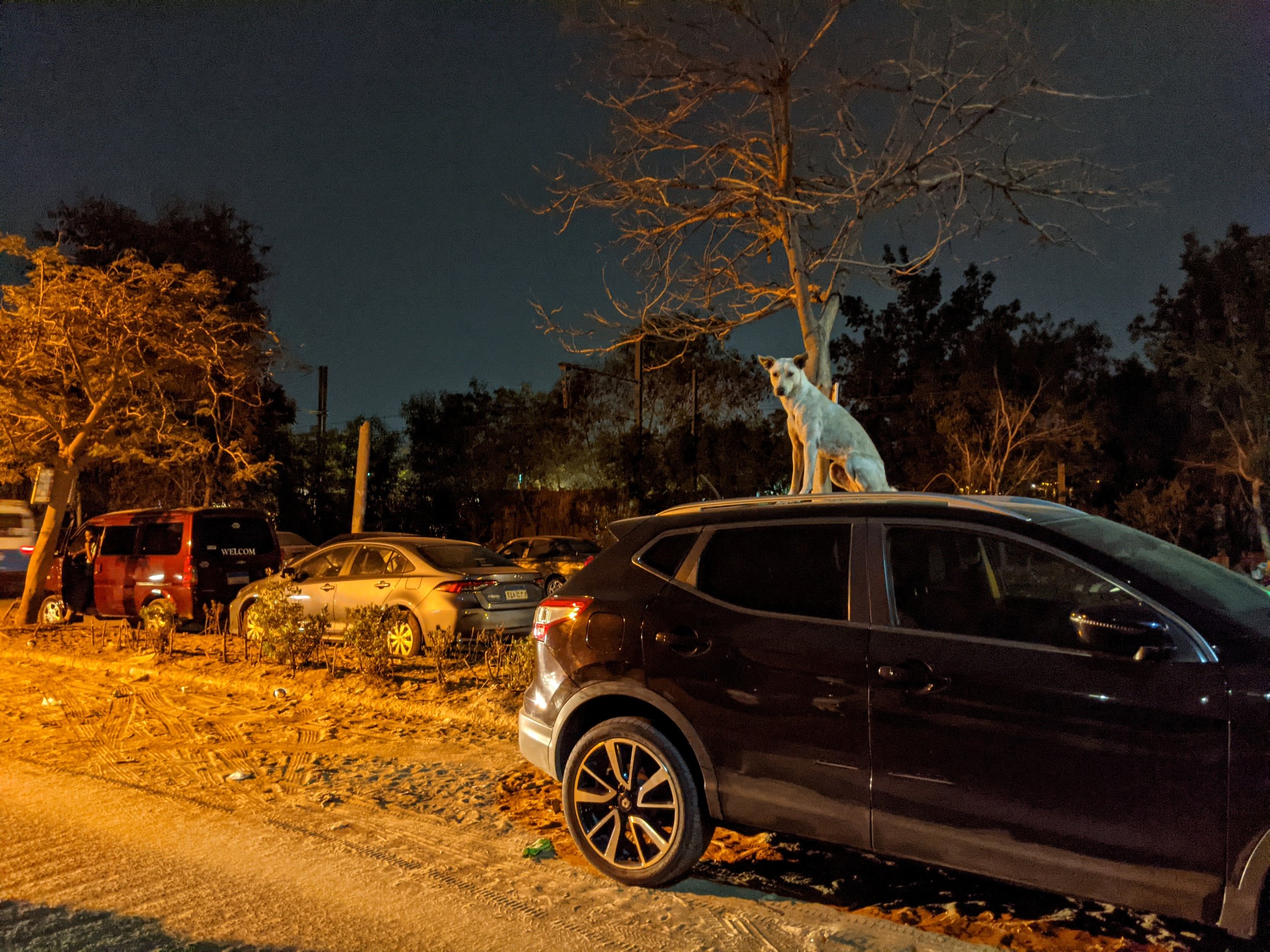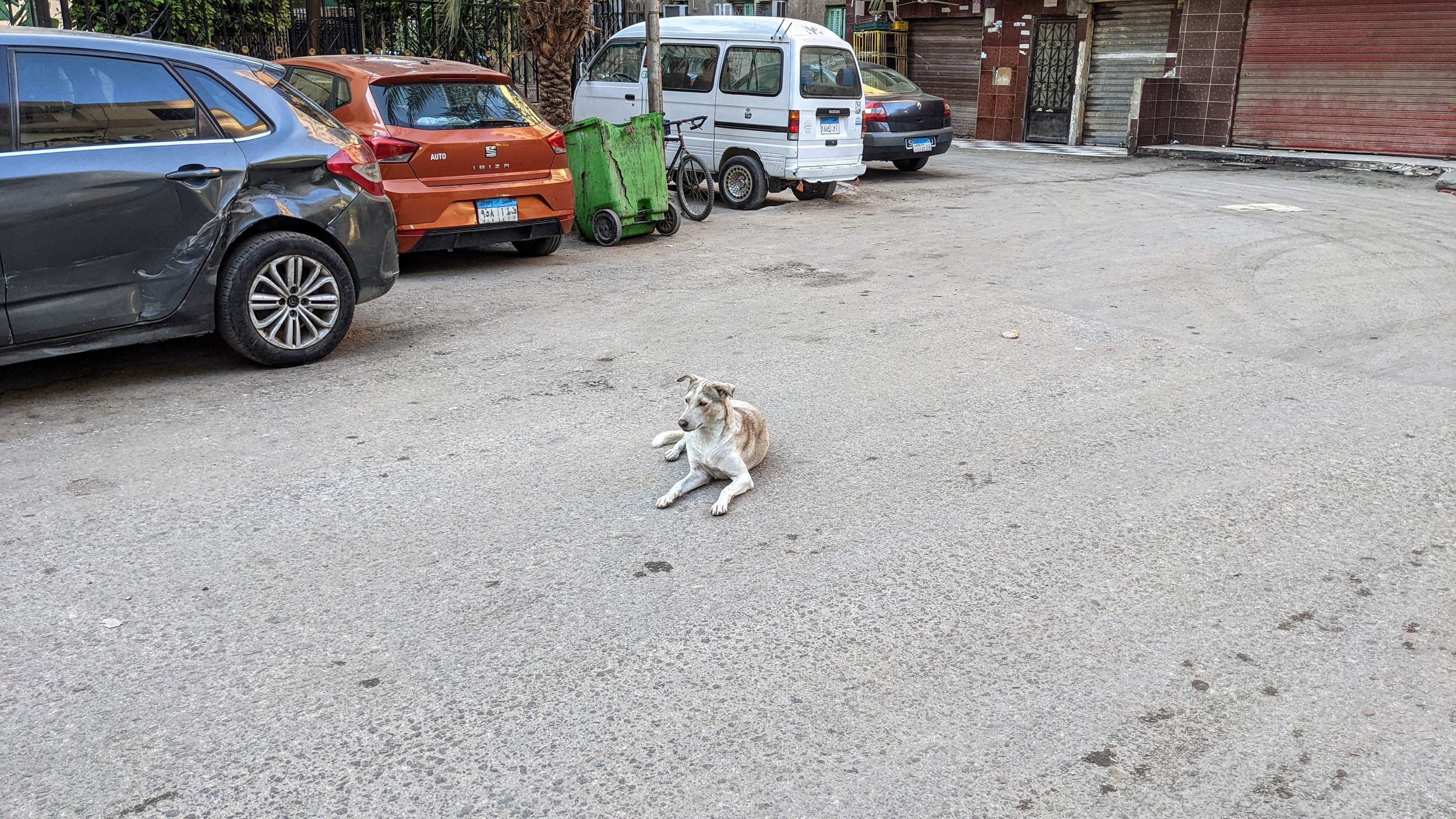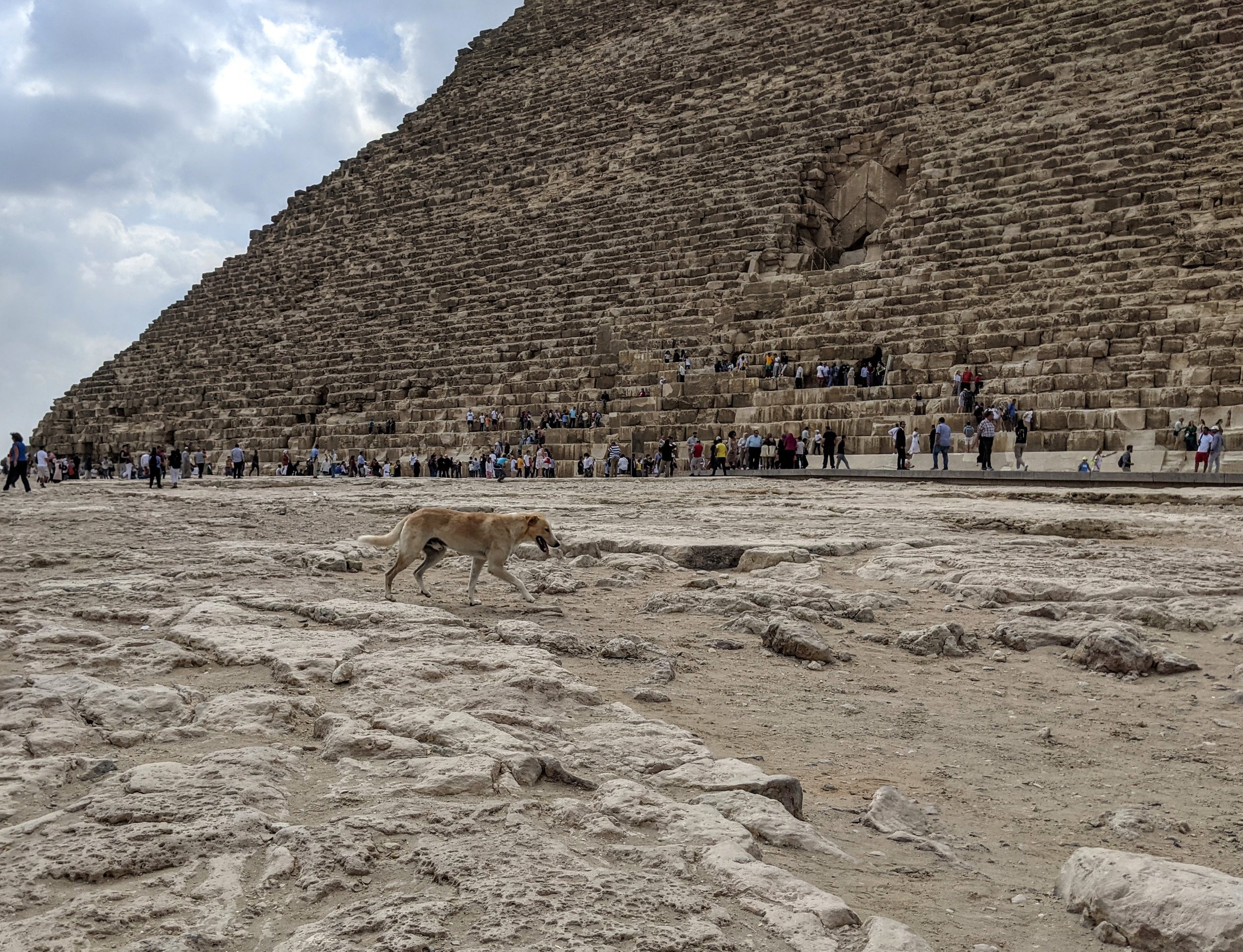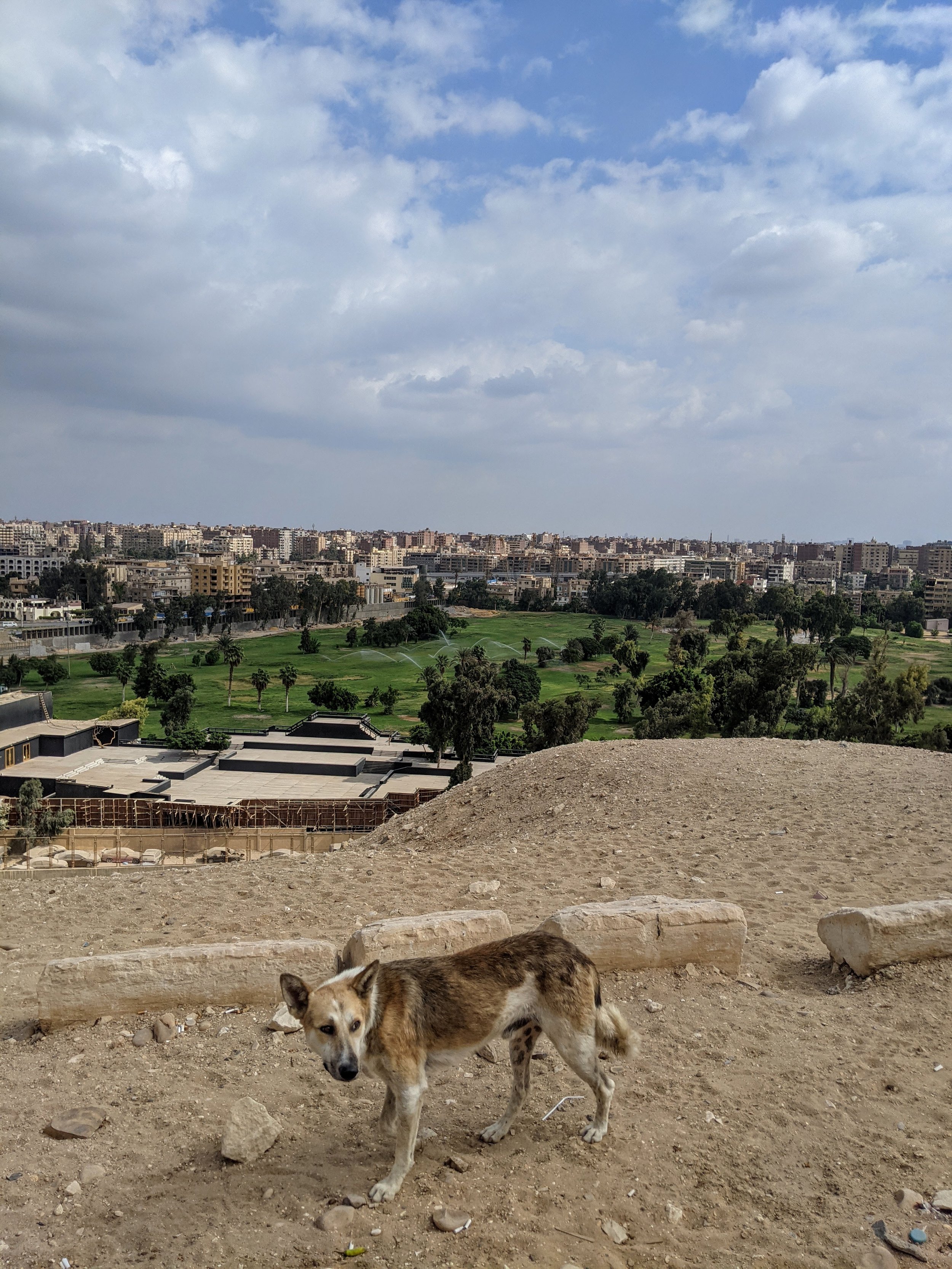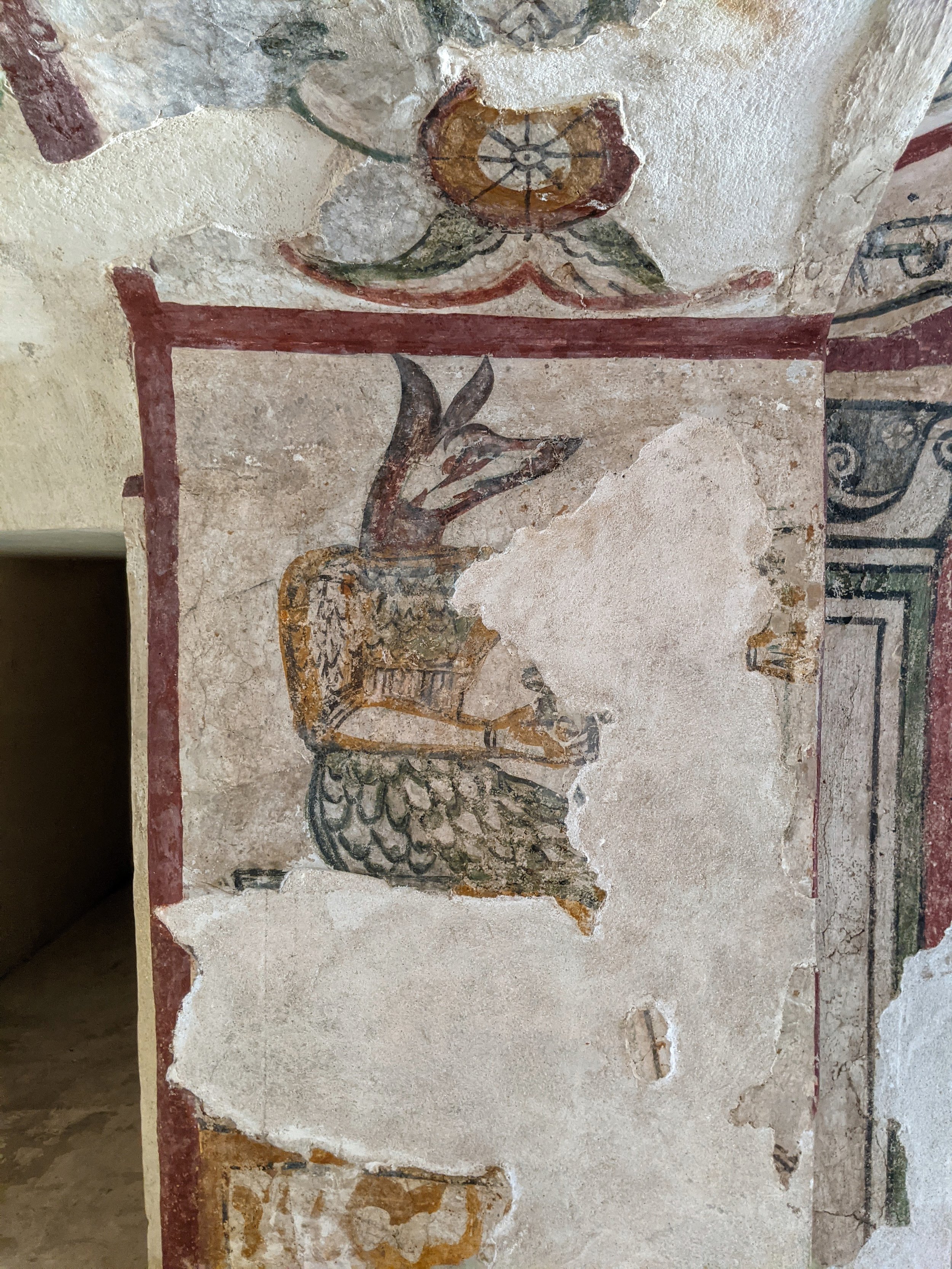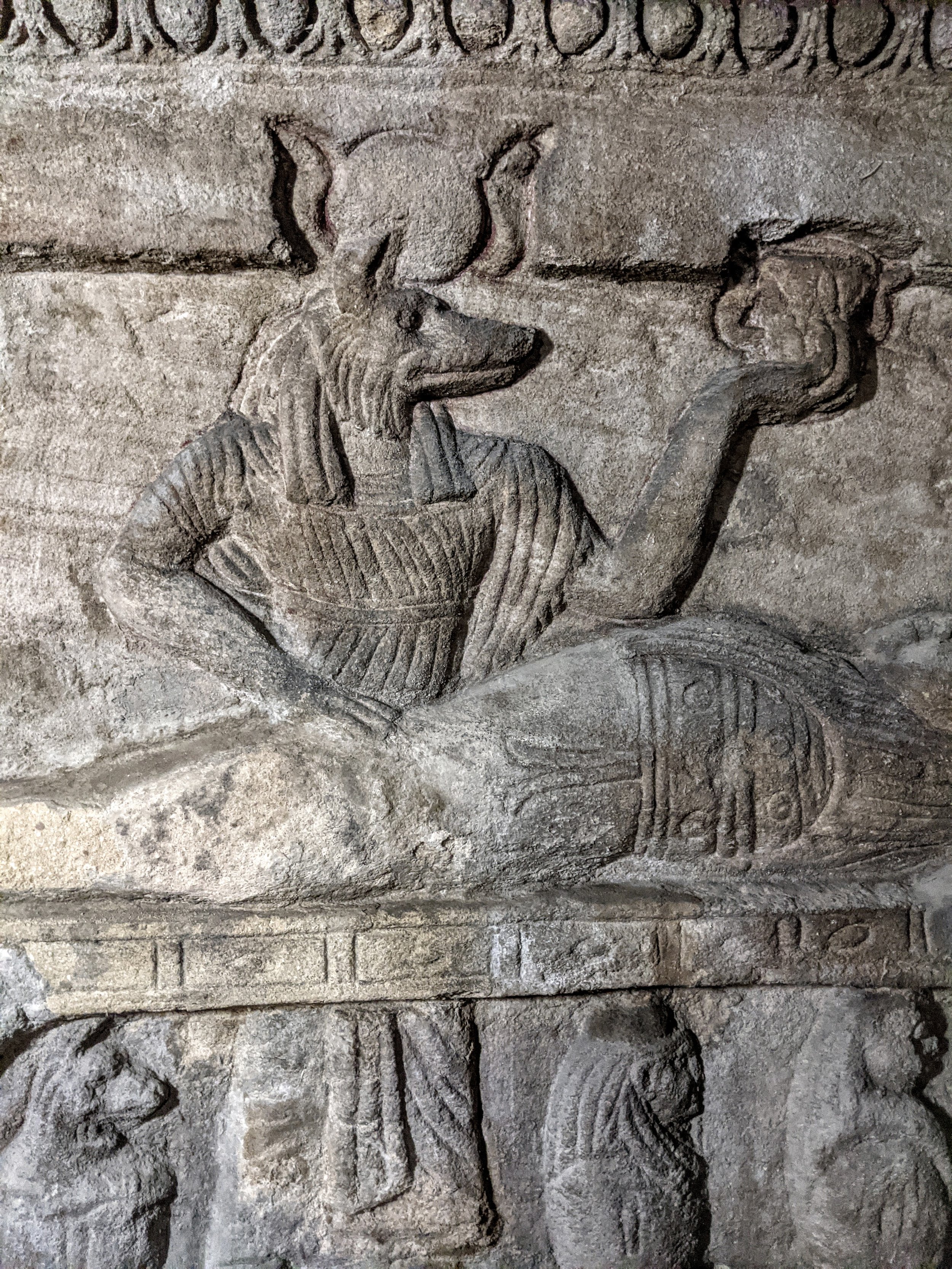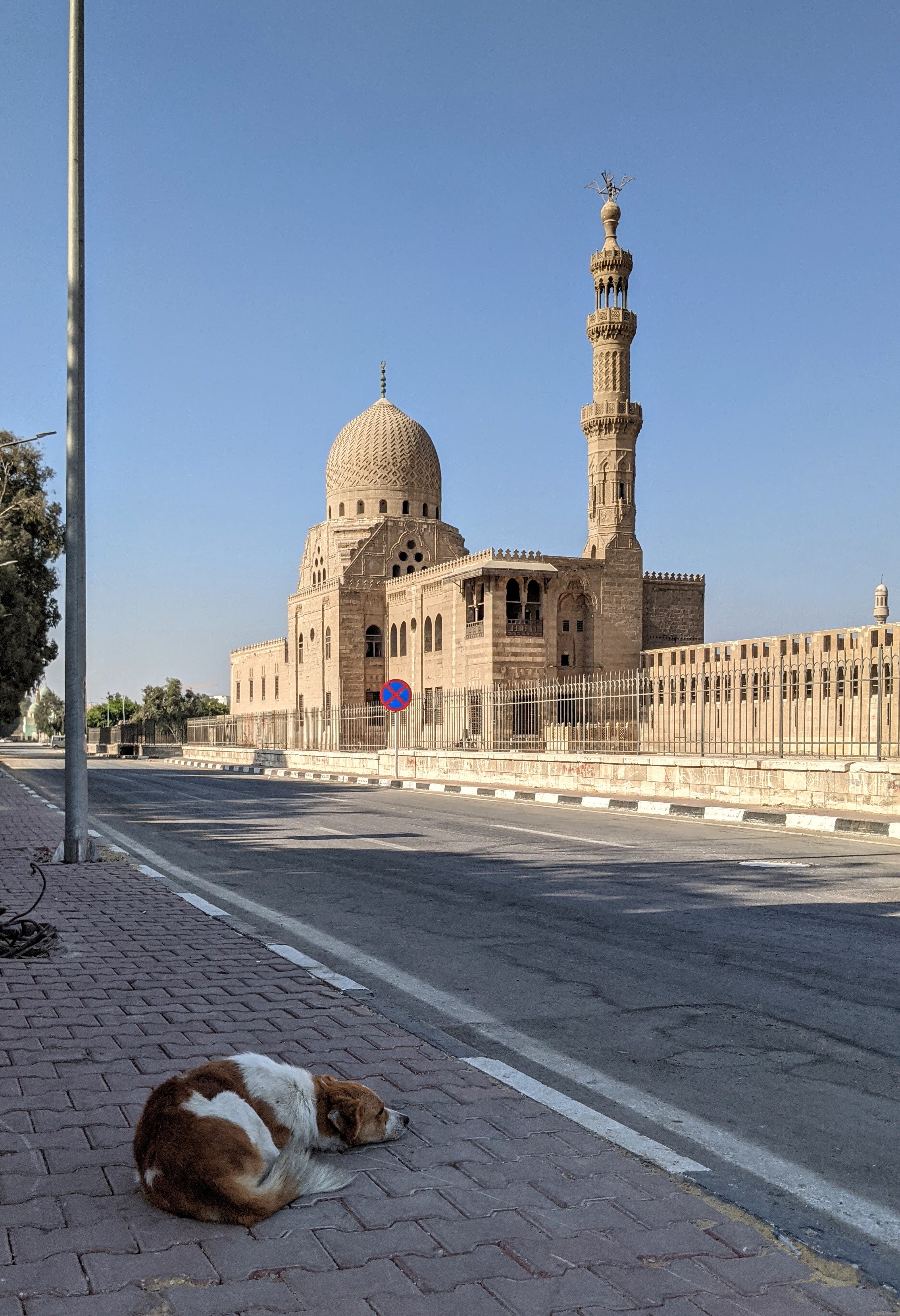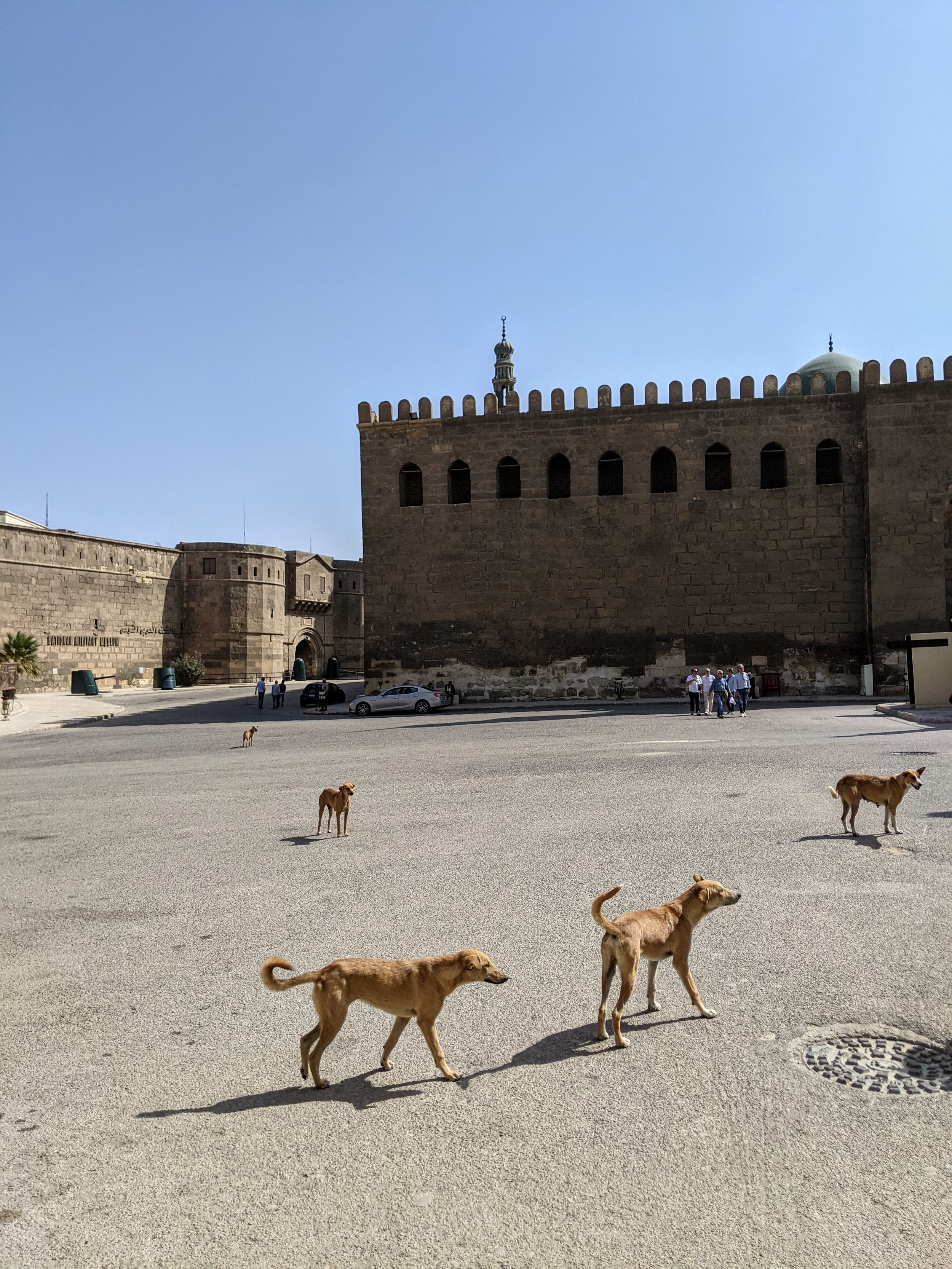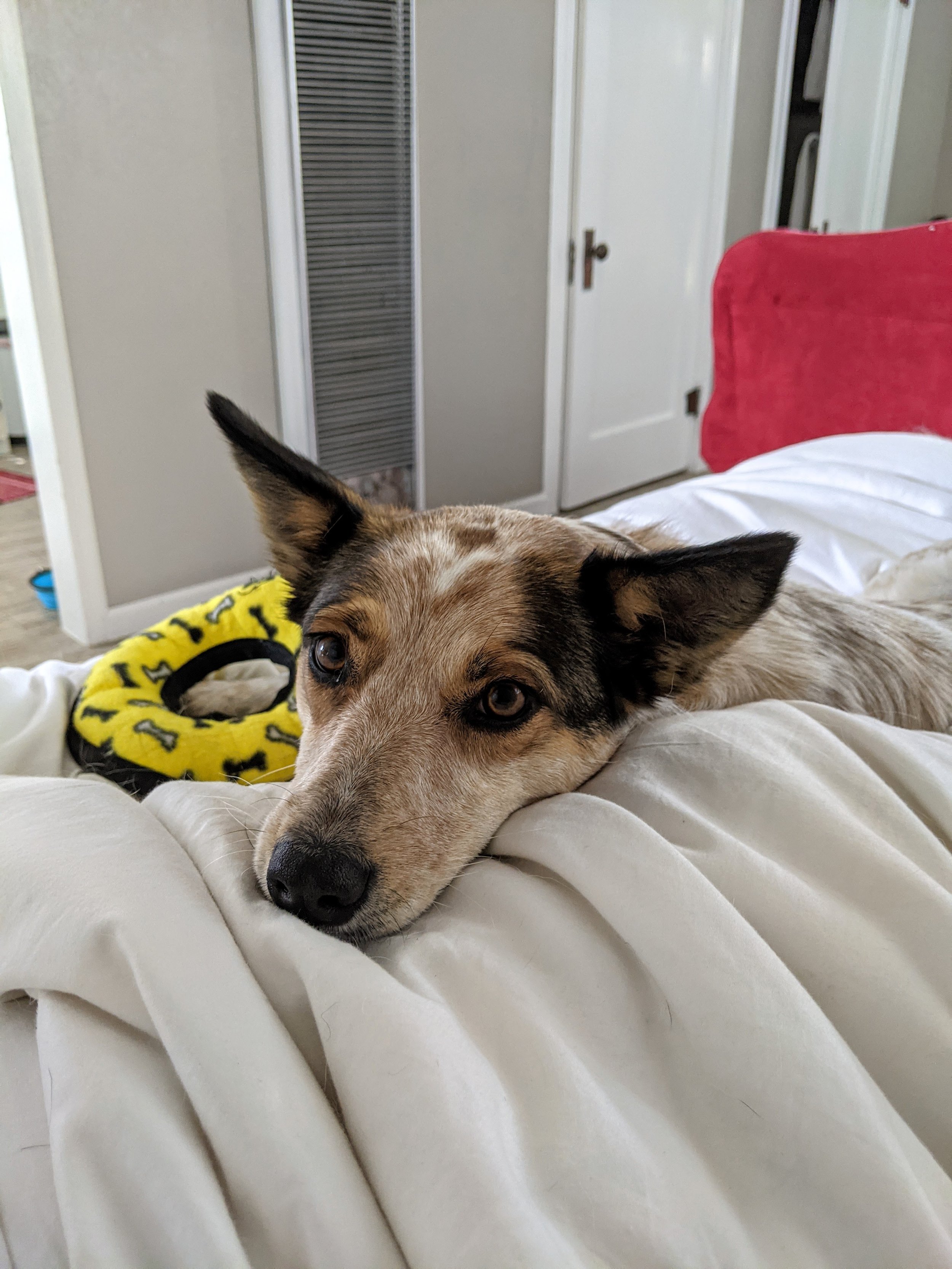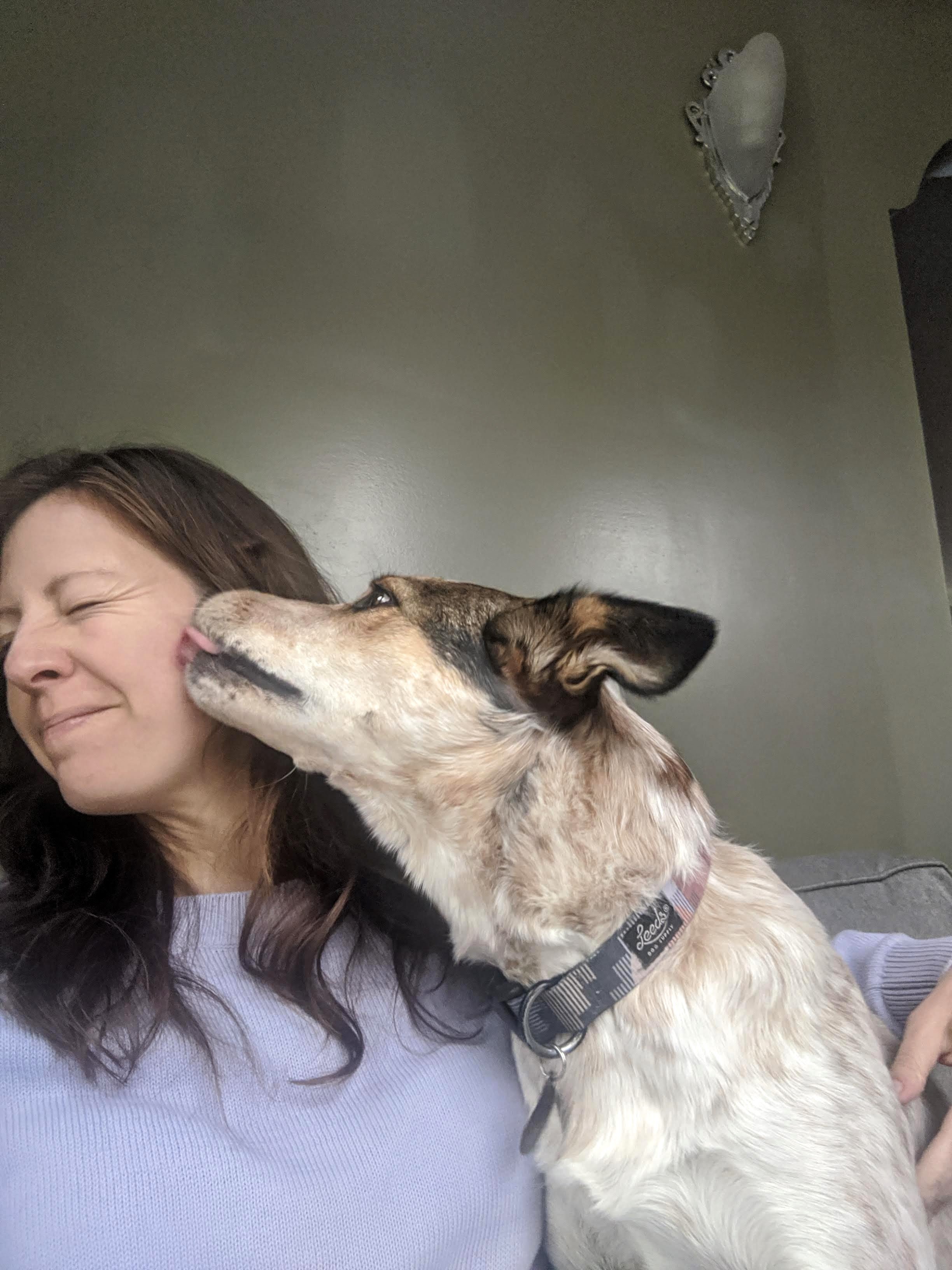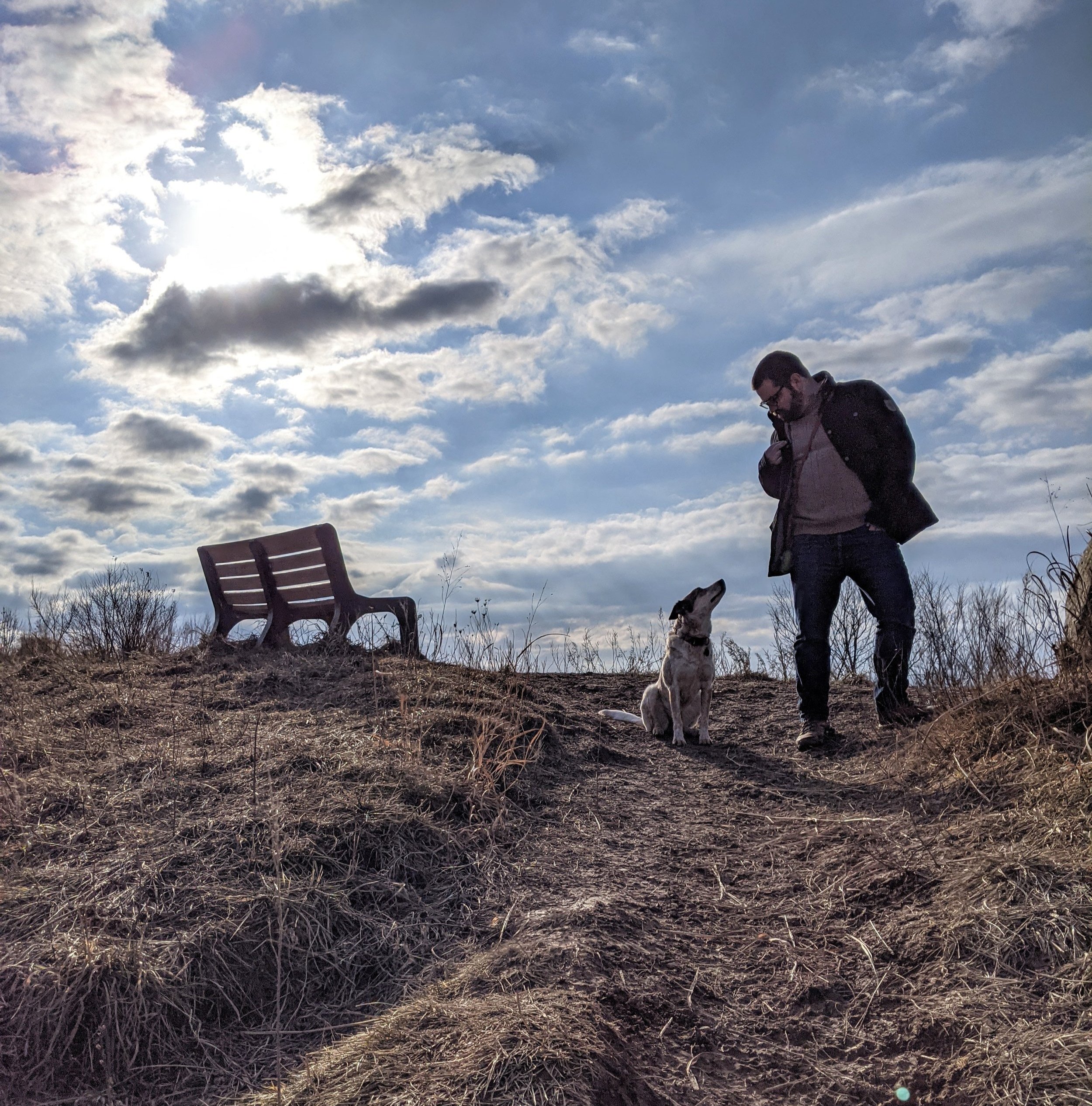strays
My dear friend,
Last night, alone in our golden apartment and feeling rather homesick, I found myself entering the following phrase into YouTube’s search box: “dogs greeting owners after being separated for a long time.” Then I spent the next ten minutes (okay, fine—it was twenty minutes) tearfully watching reunion after reunion between people and dogs, people and cats, people and primates. I was really missing Cedar.
When I described the footage to C. this morning over a cup of black tea and a piece of Nutella toast, he said that he was concerned that such a pastime would set my expectations too high for our reunion with Cedar in December. Although she is deeply loving and fiercely loyal, she has not historically greeted us with the same floppy, outsized affection of, say, a golden retriever. She’s a little more reserved. More circumspect. More controlled.
But my expectations are perfectly fine. I know that Cedar’s demonstrations of affection are more subtle than those of the overly enthusiastic husky who bounded on and off a sofa in one of the clips, and I like her better for it. What I don’t know is whether Cedar will remember us. That’s why I watched the videos: I wanted proof that dogs don’t forget the people who love them, even if those people happen to be six thousand miles away.
We definitely come across our share of dogs in Cairo. The vast majority of them are strays. We’ve been told that there are more stray dogs in Maadi, our neighborhood, than there are in other parts of the city—mostly because the expats around here are the ones most likely to feed them.
Although we don’t feed or pet them (I can hear my mother’s voice in my head, warning me of fleas and disease—and also, one of our friends here told us that when he was bitten by a dog on his run, it was nearly impossible for him to track down a rabies vaccine), we have our favorites. As we approach the cream-colored hound who monitors the corner of our street, or the black-and-brown shepherd mix, we always say hello and tell them that they’re good dogs. In return, they always wag their tails.
During the hottest hours of the day, we find them sleeping curled up beneath cars. At night, they climb up to the roofs of those cars to keep an eye on passersby and avoid the wild Cairo traffic. Often, they’re alone; other times, they trot along in friendly-seeming packs.
Once, hearing squeaking from behind a row of parked cars, I sent C. to investigate. He called me over to see a squirming heap of brand new puppies. Their mother eyed us warily as we tilted over the trash piles, trying to find the best angle for a photograph.
“Do you think,” C. asked me, as he sometimes does, “that Cedar ever thinks about her puppies?”
“I doubt it,” I said, as I always do. It was difficult to imagine Cedar’s years as a stray, accustomed as she now is to plush dog beds and knitted sweaters. “But I hope that she thinks about us.”
We have found the dogs loping along the perimeter of the pyramids and considering the city skyline from the Giza Plateau. Largely indifferent to the rich cultural and political history that surrounds them, the dogs seem more interested in finding shady places to nap, nosing through trash heaps, and barking at their sheltered, privileged cousins who strut by on leashes with obedient owners in tow.
Egyptians’ reverence for cats is fairly well known, but archeological excavations suggest that the ancients appreciated the companionship of canines, too. The ancient Egyptian word for dog, variously transcribed as “iwiw” or “io,” imitates the sound of barking. In a tomb painting from 3500 B.C., a man walks his dog on a leash. In certain images of King Tut, hunting dogs appear beside the pharaoh’s chariot. In 1936, a Harvard-Boston archeological expedition “found an inscription recording the burial of a dog named Abuwtiyuw with all the ritual ceremonies of a great man of Egypt, carried out by the orders of the King of Upper and Lower Egypt.” The inscription reads as follows:
The dog which was the guard of his majesty. Abuwtiyuw was his name. His majesty ordered that he be buried ceremonially), that he be given a coffin from a royal treasury, fine linen in great quantity, (and) incense. His Majesty (also) gave perfumed ointment, and (ordered) that a tomb be built for him by the gangs of masons. His majesty did this for him in order that he (the dog) might be honored (before the great god, Anubis).
Anubis, the jackal-headed god of travel, embalming, and death (the greatest journey!), is responsible for shuttling souls to the afterlife. According to Egyptologist Salima Ikram, Anubis “is associated with canines because they run through the deserts, they don't lose their way and you find them around graveyards.”
Since Anubis is also the god who determines a person’s fate in the underworld by weighing her heart on a scale against a feather, he’s someone you want to keep happy. Scholars believe that this is why so many dogs (about eight million have been found in a complex of catacombs at Saqqara) were mummified and offered up as gifts to Anubis. It seems likely that dogs were bred specifically for the purpose of becoming mummies.
“You don't get 8 million mummies without having puppy farms," Ikram told NPR. "And some of these dogs were killed deliberately so that they could be offered. So for us, that seems really heartless. But for the Egyptians, they felt that the dogs were going straight up to join the eternal pack with Anubis. And so they were going off to a better thing.”
In recent decades, the strays haven’t fared quite as well. According to the Egypt Independent, the main strategy for managing street dogs has been to scatter poison overnight and collect carcasses in the morning. Over the past five or six years, however, volunteers through rescue organizations and veterinary clinics such as Egyptian Vets for Animal Care (EVAC) have dedicated themselves to trapping, vaccinating, sterilizing, and releasing strays in an attempt to control the population more humanely. Much of the current efforts are focused on middle- and upper-class neighborhoods—often populated by expats—such as our own Maadi.
Mohamed Shehata, founder of EVAC, estimates that the organization has treated 10,000 dogs over the past few years. And yet, without government funding or adequate animal protection laws, as the Egypt Independent reports, “the future of the country’s street dogs remains uncertain.”
Do you think that Cedar ever misses the freedom of her life before us? When she was a stray, she could chase squirrels and rabbits to her heart’s content, without anyone tugging on her leash; she could nose through scraps and guard her treasured bones without anyone chastising her.
Sometimes, at home, I used to think about this. But then Cedar would clamber onto my knees and sprawl across my laptop, and I’d feel her heartbeat drumming through my thighs, and I’d watch her chest rise and fall as she was sleeping and I’d marvel at a connection that felt suddenly miraculous.
The world is such a vast and crowded labyrinth. How on earth did we manage to find each other?
As I’ve been missing her these past few weeks, I’ve been thinking about the chapter in Antoine de Saint-Exupéry’s Le Petit Prince, when the fox asks the little prince to tame him. The little prince wants to know: “What does that mean— ‘tame’?”
“It is an act too often neglected,” said the fox. “It means to establish ties.”
The fox explains that if they tame each other, the world will become richer, more poignant, and more meaningful. And so the little prince agrees. But then, when the time comes for him to depart, the fox’s heart is broken.
“It is your own fault,” said the little prince. “I never wished you any sort of harm; but you wanted me to tame you…”
“Yes, that is so,” said the fox.
“But now you are going to cry!” said the little prince.
“Yes, that is so,” said the fox.
I wish there were a way for us to tell Cedar (who, I now see, bears a resemblance to Anubis in certain lights) that although we have currently strayed from her, we will soon be coming back. I wish there were a way for us to be both here and there. If I could have the strange beauty of these faded balconies, this sandy sunlight, and this freedom to roam, together with you and Cedar and all the loved ones I’ve left behind—maybe then I’d feel complete.
Instead, while I am here, I am missing home; and when I return, I will find myself missing this place. Perhaps it’s impossible to escape this kind of longing. Perhaps we’re all doomed to be forever leaning toward what we’ve lost or what we want—yearning, like a stray dog at a butcher shop, for whatever is just out of reach.
Yours—L.
A clip of Cedar playing fetch, recorded by our friend Aybike a few days after we left the country.



